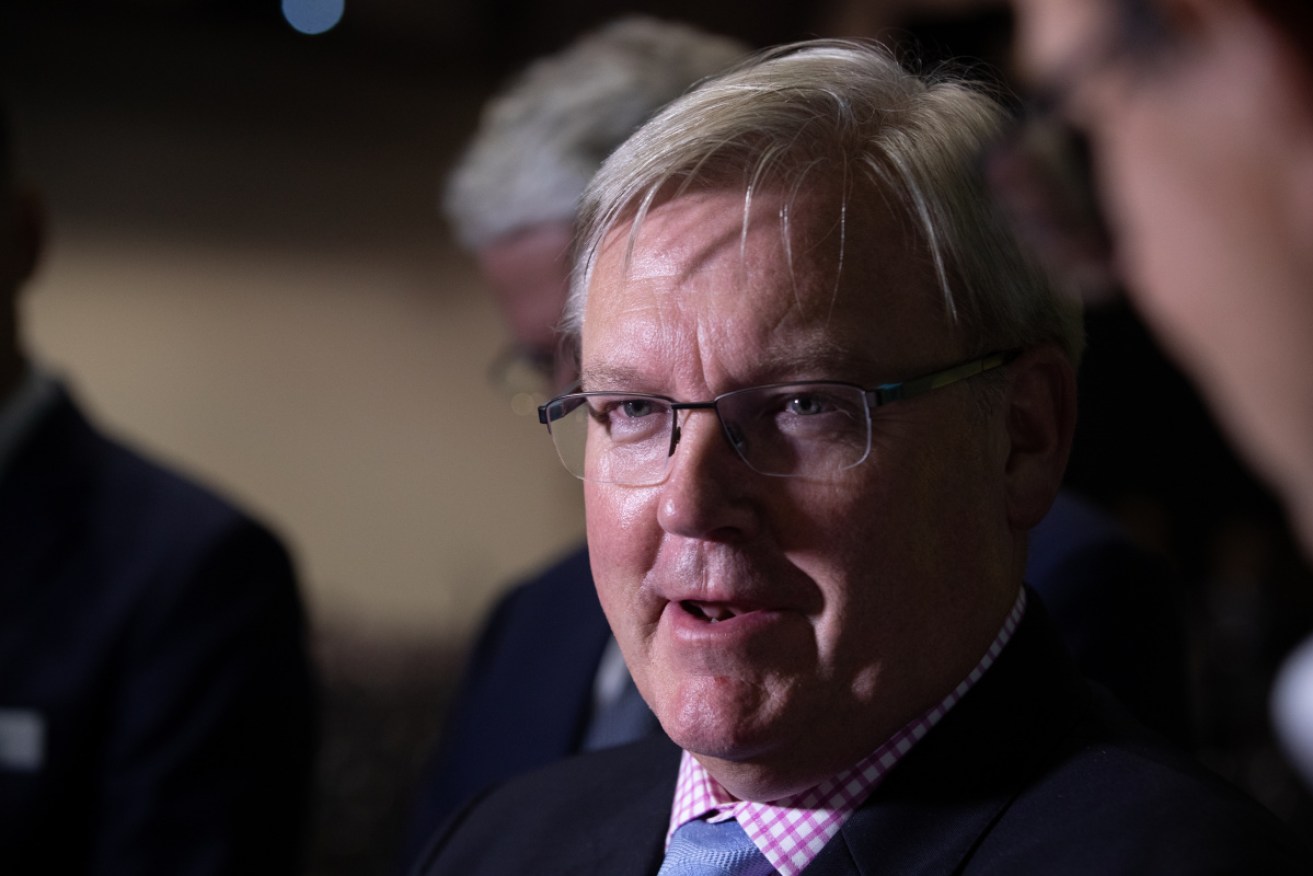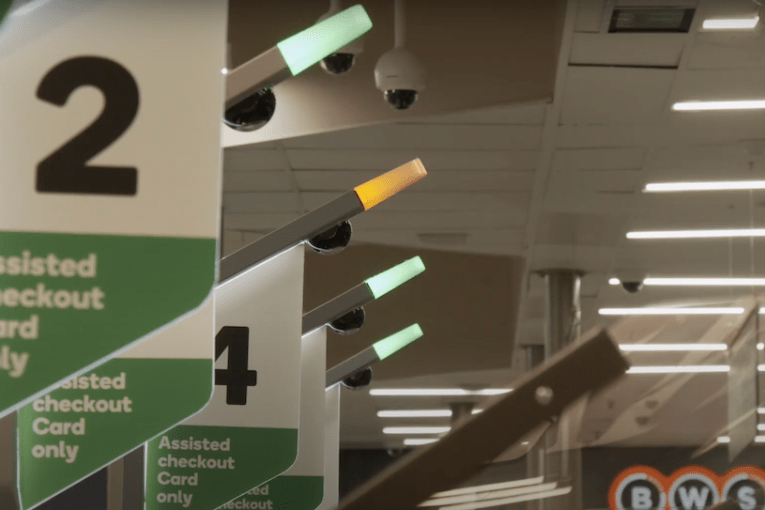‘Most disruptive period’: Coles targets Easter for restocked shelves after Omicron


Coles boss Steven Cain hopes supermarket shelves will be back to normal by Easter. Photo: AAP
Coles hopes to fully restock its shelves in time for Easter, after the “most disruptive period” in the supermarket’s 108-year history.
As the staffing crisis eases, Coles CEO Steven Cain said the past six months had been difficult to navigate as the chain faced stock shortages brought on by the Omicron wave.
Speaking to analysts on Tuesday, Mr Cain said “huge volumes” of food and grocery products are now making their way into stores after almost two months of shortages, with Coles stock levels “improving by the day”.
But he warned the supermarket’s supply chain isn’t at full strength yet, suggesting it could take until Easter in early April to fully restock shelves.
“We’re not at a steady state yet,” Mr Cain said.
“I’m hoping we’ll be at steady state by Easter. That’s our ambition.”
Both Coles and its rival Woolworths have copped the ire of shoppers for bare supermarket shelves in recent months, with every aisle from fresh food to packaged groceries affected by Omicron-led staffing shortages.
In January about a third of Coles’ supply chain staff missed work due to COVID-19, part of a far bigger record spike in workers taking sick leave.
But now that Omicron has peaked, essential staff are returning to work moving pallets, driving trucks and stocking shelves – fixing the problem.
“There’s a huge amount of activity every week,” Mr Cain said.
“The caseload recovery every week is significant. We’ll hopefully have more updates for you in April.”
Woolworths also expects to have more food in stock by the Easter weekend.
“Our stock levels continue to improve across the eastern seaboard and we expect to be in a much stronger supply position by Easter,” a Woolworths spokesperson said on Tuesday.
“We encourage everyone to be mindful of others in the community and to continue shopping in reasonable quantities.”
Supermarket inflation on the rise
Shoppers will be paying more for some groceries once shelves are fully restocked, though, with Mr Cain conceding that inflationary pressures are mounting among its supermarket suppliers and in Coles’ own business.
Coles posted a 0.2 per cent decline in prices for the six months ended December 31, but excluding tobacco and fresh fruit, prices rose in Q4.
Mr Cain said on Tuesday both local and global costs are rising, with higher prices for key transport inputs like oil putting pressure on profits.
“We have seen further cost price pressure coming through in the early part of this half and we expect that to continue,” Mr Cain said.
“We’ll be trying to prioritise our customer value position.”
The New Daily reported last month that grocery suppliers want to raise their prices on the back of rising cost pressures.
Supermarkets must approve price rises before customers are slugged.
Mr Cain said on Tuesday that Coles will assess these applications for price hikes on a “case by case” basis, taking into account supplier costs.
“My crystal ball isn’t able to predict exactly what’s going to happen over the next six months,” Mr Cain said.
“But I would expect own brand [private label] penetration to continue to increase for those that are looking for value.”
Mr Cain said there will be no “one size fits all” approach to price rises for shoppers, noting there will be some cases where Coles absorbs higher supplier costs and others where these are passed on to consumers.
“As we look to the next six months [we’re] making sure the customer value proposition … is the No.1 priority,” he said.
“And then obviously we’ll be looking to the P&L [profit and loss] as well.”
Shoppers are already pricing in higher inflation into their budgets after the headline consumer price index rose to 3.5 per cent in December.
Inflation expectations hit a seven-year high on Tuesday, according to the Roy Morgan/ANZ consumer confidence index, which tracked a 5.1 per cent rise in cost-of-living fears.
Coles profits slide on COVID-19 costs
Coles posted a profit slide for the six months to December on Tuesday, with about $150 million in COVID-19 costs weighing on its bottom line.
After-tax profits fell 2 per cent to $549 million, though sales increased by about 1 per cent to $20.95 billion compared to the same period in 2020.
Analysts saw it as a strong result given the headwinds Coles faced over the half, with Delta lockdowns adding to costs before Omicron came in.
Investors agreed – Coles’ share price rose about 3 per cent on Tuesday.








